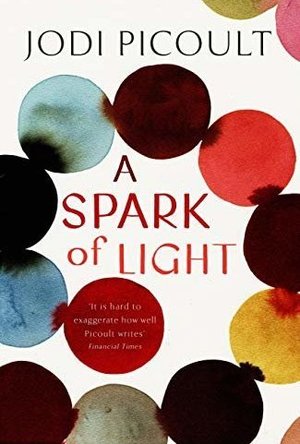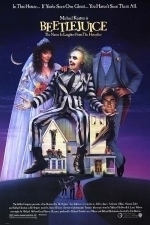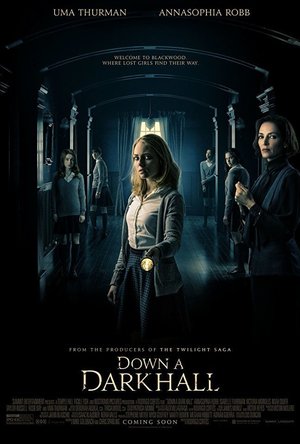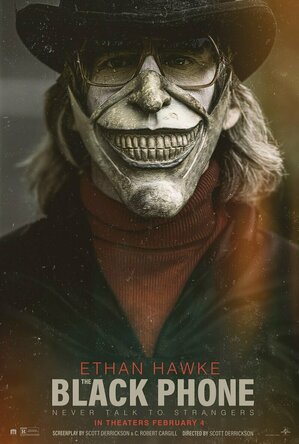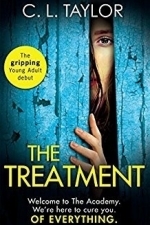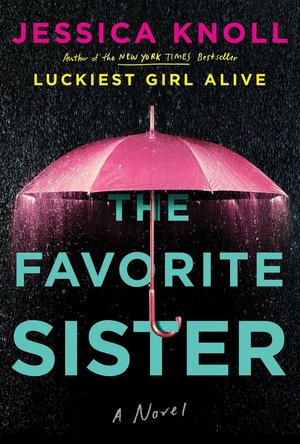Search
Search results

comiXology - Comics & Manga
Book, Comics and Entertainment
App
Are you ready to explore over 100,000 digital comics, graphic novels and manga from Marvel, DC,...

Jerzy Dudek: A Big Pole in Our Goal - Autobiography
Book
Liverpool Football Club has won trophy after trophy. It has enjoyed success after success....
BookInspector (124 KP) rated A Spark Of Light in Books
Sep 24, 2020
Wow, this book does have a good punch to throw, and I absolutely loved it. The main topic discussed in this book – abortions. This book tells multiple stories from multiple perspectives. One of few abortion clinics in Mississippi has a man entering the clinic, who starts shooting, remaining alive are being kept as hostages. Jodi tells the stories of everybody inside, plus few extra characters, who are very related to the story itself.
This book has a very wide and diverse variety of characters, and they all have an amazing story to tell. I really liked all the characters, I think they were very well developed and incredibly gripping. I thoroughly enjoyed their stories and all the emotions which they brought to this book. I really liked, that the characters kept travelling back to when they were little, that allowed me to connect with the characters even more, and I loved to see what were their values in life, or how life shaped them to be the people they were now.
The narrative was incredibly indulging, and I always wanted to find out, what is going to happen next. The book is written backwards, and even though it was a unique experience and it made perfect sense while reading, I am not sure I really liked this type of writing. I did find it confusing sometimes because there were quite a lot of characters, and their stories kind of mixed up for me sometimes. There were plenty of important topics discussed in this novel, such as single parenthood, father’s love for their daughters, abortions, religion, teenage pregnancies, rapes and many more. One thing for sure, the research was done for this book was impeccable. You can feel the real stories breathing through the experiences of the characters, and it really got me thinking. I wasn’t expecting any twists in this story to be honest, but I can promise you, this book brings some very unexpected turns and surprises. 🙂
Jodi’s writing style is absolutely incredible, she delivered such a sensitive topic while stating facts and points of view but not being judgmental. She states pro-choice point of view as well as pro-life and allows the reader to make a decision. The chapters were quite long, but they were divided into small parts, so it did not drag for me at all, and it was quite a page-turner. I really liked how the book ended, I think it rounded up the story very nicely. So, to conclude, this book is very powerful and deep, but at the same time and incredibly interesting read. It does require an open mind and ability to look at the things from different angles. I do think this book is a brilliant read, with amazingly crafted characters and very absorbing plot, and I do strongly recommend to read it.
This book has a very wide and diverse variety of characters, and they all have an amazing story to tell. I really liked all the characters, I think they were very well developed and incredibly gripping. I thoroughly enjoyed their stories and all the emotions which they brought to this book. I really liked, that the characters kept travelling back to when they were little, that allowed me to connect with the characters even more, and I loved to see what were their values in life, or how life shaped them to be the people they were now.
The narrative was incredibly indulging, and I always wanted to find out, what is going to happen next. The book is written backwards, and even though it was a unique experience and it made perfect sense while reading, I am not sure I really liked this type of writing. I did find it confusing sometimes because there were quite a lot of characters, and their stories kind of mixed up for me sometimes. There were plenty of important topics discussed in this novel, such as single parenthood, father’s love for their daughters, abortions, religion, teenage pregnancies, rapes and many more. One thing for sure, the research was done for this book was impeccable. You can feel the real stories breathing through the experiences of the characters, and it really got me thinking. I wasn’t expecting any twists in this story to be honest, but I can promise you, this book brings some very unexpected turns and surprises. 🙂
Jodi’s writing style is absolutely incredible, she delivered such a sensitive topic while stating facts and points of view but not being judgmental. She states pro-choice point of view as well as pro-life and allows the reader to make a decision. The chapters were quite long, but they were divided into small parts, so it did not drag for me at all, and it was quite a page-turner. I really liked how the book ended, I think it rounded up the story very nicely. So, to conclude, this book is very powerful and deep, but at the same time and incredibly interesting read. It does require an open mind and ability to look at the things from different angles. I do think this book is a brilliant read, with amazingly crafted characters and very absorbing plot, and I do strongly recommend to read it.
Emma @ The Movies (1786 KP) rated Beetlejuice (1988) in Movies
Sep 25, 2019
I'm really enjoying the classic movie re-releases at Cineworld. I've been along to several in the last year and enjoyed every one of them, so when Beetlejuice came up in the listings it was a must see for me as I loved this from the very first time I saw it.
With the other releases I didn't have much to worry about, they were either brand new to me or I'd never seen them the whole way through so it was going to be a new experience... but this time... could I be risking those great memories? While it did run through my head while I waited for the film to start I wasn't going to deny myself the chance to see it on the big screen. It did bring up a few moments that made me ponder, but all in all I'm glad that I got the chance to see it in the cinema.
At 30 years old you'd expect things to be a little dated, and perhaps the general feel of the film is with some old fashioned clothing, but most of it still holds up. The one thing that makes you notice the age is the cast. Everyone looks so young!
It's a fantastic cast too. Alec Baldwin and Geena Davis, Adam and Barbara, the perfect couple living a peaceful life out in the country. Winona Ryder, Lydia, the dark and brooding teenage daughter of Jeffrey Jones' Charles and step-daughter to Catherine O'Hara's Delia. We of course can't forget the film's (almost) namesake, Michael Keaton as Betelgeuse. Each one brings a little something different to the film and you get some fun interactions between them all as well as with the supporting cast.
The only real thing that struck me after rewatching this after a few years is that Beetlejuice doesn't actually feature in it as much as I remember. But then the film itself also feels quite short, which at 1 and a half hours it is, again, I just didn't remember it that way.
Some of Beetlejuice's antics may feel a little cringe worthy to newer viewers. To be fair some did to me as a seasoned veteran of the movie. But his over the top nature and motor mouth lead to some entertaining diversions throughout.
The highlights for me as always are the dance routines. (And possibly some of the earliest twerking in the movie biz?) I think we were all dancing a little in our seats as they played out in front of us.
It still brings just as much fun as it did before, it's one of those favourites that you can watch anytime you need something a bit upbeat
What you should do
You should watch this at least once. It's daft and some fun lighthearted humour to break up a dull day.
Movie thing you wish you could take home
If I could have the full backing band when I sing at home that would be great!
With the other releases I didn't have much to worry about, they were either brand new to me or I'd never seen them the whole way through so it was going to be a new experience... but this time... could I be risking those great memories? While it did run through my head while I waited for the film to start I wasn't going to deny myself the chance to see it on the big screen. It did bring up a few moments that made me ponder, but all in all I'm glad that I got the chance to see it in the cinema.
At 30 years old you'd expect things to be a little dated, and perhaps the general feel of the film is with some old fashioned clothing, but most of it still holds up. The one thing that makes you notice the age is the cast. Everyone looks so young!
It's a fantastic cast too. Alec Baldwin and Geena Davis, Adam and Barbara, the perfect couple living a peaceful life out in the country. Winona Ryder, Lydia, the dark and brooding teenage daughter of Jeffrey Jones' Charles and step-daughter to Catherine O'Hara's Delia. We of course can't forget the film's (almost) namesake, Michael Keaton as Betelgeuse. Each one brings a little something different to the film and you get some fun interactions between them all as well as with the supporting cast.
The only real thing that struck me after rewatching this after a few years is that Beetlejuice doesn't actually feature in it as much as I remember. But then the film itself also feels quite short, which at 1 and a half hours it is, again, I just didn't remember it that way.
Some of Beetlejuice's antics may feel a little cringe worthy to newer viewers. To be fair some did to me as a seasoned veteran of the movie. But his over the top nature and motor mouth lead to some entertaining diversions throughout.
The highlights for me as always are the dance routines. (And possibly some of the earliest twerking in the movie biz?) I think we were all dancing a little in our seats as they played out in front of us.
It still brings just as much fun as it did before, it's one of those favourites that you can watch anytime you need something a bit upbeat
What you should do
You should watch this at least once. It's daft and some fun lighthearted humour to break up a dull day.
Movie thing you wish you could take home
If I could have the full backing band when I sing at home that would be great!
BookwormLea (3034 KP) rated Down a Dark Hall (2018) in Movies
Jul 26, 2020
Movie? Not great. Concept? Fabulous!
Contains spoilers, click to show
So I wouldn't call this a good horror. Maybe a passable thriller or drama??? Just the usual possession and strange happenings in a secluded school. (If you're looking for a better version of a similar thing, i recommend The Silenced.)
The general plot is that after her father dies when she's young, Katherine slowly becomes the stereotypical angry teen who lets the world know she hates it by letting it burn. She gets made to go to therapy after claiming she sees her father (which she does, because we watched his spirit say goodbye). She is invited to Blackwood. A mysteriously remote mansion home to 6 even more mysterious teachers, including Madame Duret, the headmistress. Kat is joined by 4 other girls of a seemingly lost cause. Duret calls them 'gifted' and 'misunderstood'. They are taught the usual lessons, Maths and English, music and art. And with the exception of Veronica (the literal definition of teenage nightmare) they all seem to excel at one thing in particular. Our lead girl Kat, music, specifically piano. She is taught by Durets son, Jules. Everything seems to be going well, one girl paints like a prodigy, another writes poems that could rock Shakespeares world, Kat does her piano thing rivalling Mozart and the last (who could basically still be in the role of Esther in Orphan) is solving maths problems that could save the world. That is until they start seeing shadows of people who aren't there, voices in their heads and they physically can't stop doing what they are gifted at, to the point where they don't eat or leave their rooms. After finding old files of other girls in similar situations who died, Kat and Veronica try to do something about it. Veronica is taken away and Kat is suddenly a Piano prodigy, almost possessed by the greats themselves. Yeah 'almost'. Because that's exactly what happened. They have been used as vessels for history's greatest men and women, who died too soon. How fantastic is that? If this movie was made better, that is a brilliant plot! But of course everything goes bad, just like their ghosts, the girls start dropping like flies, Poem girl kills herself, Painter literally starves herself, and crazy math girl is on the verge of escaping when she becomes enthralled in the beauty of the flames. Flames caused by Kat when she saves Veronica from being possessed by some weird demon thing who really doesn't get explained. They almost get out. Duret gets possseded and burned by the spirits she conjured. All the teachers die and Jules is crushed when he saves Kat. Of course there has to be surviors so Kat and Veronica get out, where on the brink of death, Kat sees her father again who makes her come back to life after she tries to go with him.
Overall, not a terrible movie, but if it had been made better, would probably be one of my favourite plots ever!
The general plot is that after her father dies when she's young, Katherine slowly becomes the stereotypical angry teen who lets the world know she hates it by letting it burn. She gets made to go to therapy after claiming she sees her father (which she does, because we watched his spirit say goodbye). She is invited to Blackwood. A mysteriously remote mansion home to 6 even more mysterious teachers, including Madame Duret, the headmistress. Kat is joined by 4 other girls of a seemingly lost cause. Duret calls them 'gifted' and 'misunderstood'. They are taught the usual lessons, Maths and English, music and art. And with the exception of Veronica (the literal definition of teenage nightmare) they all seem to excel at one thing in particular. Our lead girl Kat, music, specifically piano. She is taught by Durets son, Jules. Everything seems to be going well, one girl paints like a prodigy, another writes poems that could rock Shakespeares world, Kat does her piano thing rivalling Mozart and the last (who could basically still be in the role of Esther in Orphan) is solving maths problems that could save the world. That is until they start seeing shadows of people who aren't there, voices in their heads and they physically can't stop doing what they are gifted at, to the point where they don't eat or leave their rooms. After finding old files of other girls in similar situations who died, Kat and Veronica try to do something about it. Veronica is taken away and Kat is suddenly a Piano prodigy, almost possessed by the greats themselves. Yeah 'almost'. Because that's exactly what happened. They have been used as vessels for history's greatest men and women, who died too soon. How fantastic is that? If this movie was made better, that is a brilliant plot! But of course everything goes bad, just like their ghosts, the girls start dropping like flies, Poem girl kills herself, Painter literally starves herself, and crazy math girl is on the verge of escaping when she becomes enthralled in the beauty of the flames. Flames caused by Kat when she saves Veronica from being possessed by some weird demon thing who really doesn't get explained. They almost get out. Duret gets possseded and burned by the spirits she conjured. All the teachers die and Jules is crushed when he saves Kat. Of course there has to be surviors so Kat and Veronica get out, where on the brink of death, Kat sees her father again who makes her come back to life after she tries to go with him.
Overall, not a terrible movie, but if it had been made better, would probably be one of my favourite plots ever!
BankofMarquis (1832 KP) rated Cocaine Bear (2023) in Movies
Mar 21, 2023
A Ton of Fun
When one decides to watch a film entitled COCAINE BEAR, one pretty much knows what one is getting themselves into.
And, fortunately, Director Elizabeth Banks knew exactly what type of film she was making and her (and her game cast) were up to the challenge…and the fun.
Based on a true event, where a cocaine smuggler fell to his death when his parachute failed to open, COCAINE BEAR posits the “what if” position of what would happen if a Bear ingested it and became aggressive and addicted to cocaine? This fun film takes us through that scenario.
Banks (Director of the PITCH PERFECT films) is the perfect person to helm this film, for she has her tongue planted firmly in her cheek and wisely walked the line between making it violent enough for idiots like me to enjoy and not TOO violent so that the target audience – I would assume that would be teenage boys – can attend as well. She paces the film briskly enough for the audience to not ask too many questions, and the film is short enough to be enjoyable, without beating the premise into the ground.
Jesse Tyler Ferguson (MODERN FAMILY), Kristofer Jivju (Tormand in GAME OF THRONES), Isiah Whitlock, Jr (BLACK KKKLANSMAN). and O’Shea Jackson, Jr (STRAIGHT OUTTA COMPTON) are all in on the fun and they look like they are having a GREAT time playing in this sandbox. As do Keri Russell, Matthew Rhys and the always-great Margo Martindale (forming a mini THE AMERICANS reunion). Martindale almost steals the film from the COCAINE BEAR…almost.
Special notice needs to be made of the work of Aiden Ehrenriech (erstwhile Hans Sole in SOLO: A STAR WARS STORY). He is one of those performers who looks like he is trying too hard to please, but not in this film. He looks comfortable and relaxed and this just might be the best performance of his career. The same can NOT be said for the late Ray Liotta (in his last film role). While not his best performance (that would be GOODFELLAS), it is a “classic Liotta” in that he plays the drug dealer who is looking for his lost cocaine with zest, energy and unapologetically. It’s a shame that we lost this wonderful film presence.
But…all of these performers play second fiddle to the titular character – the CGI creation that is COCAINE BEAR. Bravo to the company that did the effect in this film, they make the out-of-control bear believable while the character is doing unbelievable things.
A fun “B” flick in every sense of the word – COCAINE BEAR is a ton of fun (I laughed out loud LOUDLY a couple of times). Just know before you view it, what kind of film you are watching.
Letter Grade: B (of course)
7 stars (out of 10) and you can take that to the Bank(ofMarquis)
And, fortunately, Director Elizabeth Banks knew exactly what type of film she was making and her (and her game cast) were up to the challenge…and the fun.
Based on a true event, where a cocaine smuggler fell to his death when his parachute failed to open, COCAINE BEAR posits the “what if” position of what would happen if a Bear ingested it and became aggressive and addicted to cocaine? This fun film takes us through that scenario.
Banks (Director of the PITCH PERFECT films) is the perfect person to helm this film, for she has her tongue planted firmly in her cheek and wisely walked the line between making it violent enough for idiots like me to enjoy and not TOO violent so that the target audience – I would assume that would be teenage boys – can attend as well. She paces the film briskly enough for the audience to not ask too many questions, and the film is short enough to be enjoyable, without beating the premise into the ground.
Jesse Tyler Ferguson (MODERN FAMILY), Kristofer Jivju (Tormand in GAME OF THRONES), Isiah Whitlock, Jr (BLACK KKKLANSMAN). and O’Shea Jackson, Jr (STRAIGHT OUTTA COMPTON) are all in on the fun and they look like they are having a GREAT time playing in this sandbox. As do Keri Russell, Matthew Rhys and the always-great Margo Martindale (forming a mini THE AMERICANS reunion). Martindale almost steals the film from the COCAINE BEAR…almost.
Special notice needs to be made of the work of Aiden Ehrenriech (erstwhile Hans Sole in SOLO: A STAR WARS STORY). He is one of those performers who looks like he is trying too hard to please, but not in this film. He looks comfortable and relaxed and this just might be the best performance of his career. The same can NOT be said for the late Ray Liotta (in his last film role). While not his best performance (that would be GOODFELLAS), it is a “classic Liotta” in that he plays the drug dealer who is looking for his lost cocaine with zest, energy and unapologetically. It’s a shame that we lost this wonderful film presence.
But…all of these performers play second fiddle to the titular character – the CGI creation that is COCAINE BEAR. Bravo to the company that did the effect in this film, they make the out-of-control bear believable while the character is doing unbelievable things.
A fun “B” flick in every sense of the word – COCAINE BEAR is a ton of fun (I laughed out loud LOUDLY a couple of times). Just know before you view it, what kind of film you are watching.
Letter Grade: B (of course)
7 stars (out of 10) and you can take that to the Bank(ofMarquis)
BankofMarquis (1832 KP) rated The Black Phone (2022) in Movies
Jul 19, 2022
Tense and Suspenseful
Part STRANGER THINGS and Part IT, the new Blumhouse film, THE BLACK PHONE, is a surprisingly effective horror/thriller that is reminiscent of the better Stephen King stories - and that just might be because the short story for which this film is based on is written by Joe Hill - Stephen King’s son.
Wisely set in a time before cell phones (like both Stranger Things and It), THE BLACK PHONE tells the tale of a small town in Colorado that suddenly falls victim to “THE GRABBER” - an individual who grabs young teenage boys and kills them.
Smartly Directed by Scott Derrickson (the first DOCTOR STRANGE film), THE BLACK PHONE is effective for it focuses on the isolation of being in captivity, the anxiety of not knowing when someone is going to come through the door of the cell and the relationships of the young teens caught in “The Grabber’s” web. Credit for this, of course, goes to Derrickson who dropped out of Directing DOCTOR STRANGE IN THE MULTIVERSE OF MADNESS (over “creative differences”) and chose this passion project as his salve - and the passion shows. It must also be pointed out that Derrickson, wisely, opts to up the tension of this film, rather than the gore, so this movie becomes a suspense flick and not torture-porn.
Derrickson also draws very good performances from the young actors playing the main roles of this film - Mason Thames (Finney), Madeleine McGraw (Gwen), Tristan Pravong (Bruce), Jacob Moran (Billy) and Miguel Cazarez Mora (Robin). All are believable in their well written roles bringing more than just one-dimension to their characters.
These kids are more than ably joined by adult actors like James Ransone (IT: CHAPTER TWO), Jeremy Davies (TV’s LOST) and E. Roger Mitchell (OUTER BANKS). All of these folks bring gravitas and reality to a story that does drift into the un-reality at times.
And then there is the performance of the always good Ethan Hawke as the villain of this piece - THE GRABBER. It is a masterful performance by Hawke who brings humanity to this monster. Almost every actor that plays a villain say that they try to see the film from the villain’s point of view and Hawke brings that to this character in spades and (almost) makes one want to root for him. It is one of the better villains realized on film in the last few years.
One quibble with The Black Phone, is that it does have a tendency to sag a bit (especially in the middle). It is in the middle of the film that one can tell that this movie was based on a SHORT story and so, by necessity, there is some padding.
But that is picking a nit in what is a smart and tense film, one that will have you on the edge of your seat until the end.
Letter Grade: A-
8 stars (out of 10) and you can take that to the Bank(ofMarquis)
Wisely set in a time before cell phones (like both Stranger Things and It), THE BLACK PHONE tells the tale of a small town in Colorado that suddenly falls victim to “THE GRABBER” - an individual who grabs young teenage boys and kills them.
Smartly Directed by Scott Derrickson (the first DOCTOR STRANGE film), THE BLACK PHONE is effective for it focuses on the isolation of being in captivity, the anxiety of not knowing when someone is going to come through the door of the cell and the relationships of the young teens caught in “The Grabber’s” web. Credit for this, of course, goes to Derrickson who dropped out of Directing DOCTOR STRANGE IN THE MULTIVERSE OF MADNESS (over “creative differences”) and chose this passion project as his salve - and the passion shows. It must also be pointed out that Derrickson, wisely, opts to up the tension of this film, rather than the gore, so this movie becomes a suspense flick and not torture-porn.
Derrickson also draws very good performances from the young actors playing the main roles of this film - Mason Thames (Finney), Madeleine McGraw (Gwen), Tristan Pravong (Bruce), Jacob Moran (Billy) and Miguel Cazarez Mora (Robin). All are believable in their well written roles bringing more than just one-dimension to their characters.
These kids are more than ably joined by adult actors like James Ransone (IT: CHAPTER TWO), Jeremy Davies (TV’s LOST) and E. Roger Mitchell (OUTER BANKS). All of these folks bring gravitas and reality to a story that does drift into the un-reality at times.
And then there is the performance of the always good Ethan Hawke as the villain of this piece - THE GRABBER. It is a masterful performance by Hawke who brings humanity to this monster. Almost every actor that plays a villain say that they try to see the film from the villain’s point of view and Hawke brings that to this character in spades and (almost) makes one want to root for him. It is one of the better villains realized on film in the last few years.
One quibble with The Black Phone, is that it does have a tendency to sag a bit (especially in the middle). It is in the middle of the film that one can tell that this movie was based on a SHORT story and so, by necessity, there is some padding.
But that is picking a nit in what is a smart and tense film, one that will have you on the edge of your seat until the end.
Letter Grade: A-
8 stars (out of 10) and you can take that to the Bank(ofMarquis)
Hazel (1853 KP) rated The Treatment in Books
Sep 28, 2017
One Flew Over the Cuckoo's Nest for Teens
This ARC was provided by the publisher via NetGalley in exchange for an honest review
You have to help me. We’re not being reformed. We’re being brainwashed. When sixteen-year-old Drew Finch receives this note from a strange woman on the street claiming to be her brother’s psychologist, she does not know how to react. But when a speeding car hits the doctor immediately after, Drew begins to think something portentous is afoot. In The Treatment by C. L. Taylor, the Residential Reform Academy in Northumberland is achieving great things, turning antisocial teenagers into model citizens. Mason, Drew’s brother, has been expelled from three different schools and has been sent to the academy as a last resort, however, Drew now suspects that Mason is in trouble.
In a slightly dystopian setting, Drew, a usually quiet girl, easily gets herself admitted to the academy by punching the school bully. With the intention of helping Mason escape, Drew calmly arrives at the Academy, not realising how much danger she is placing herself in. She soon discovers that this would not be a transitory admission and, unless she escapes, she will become like all the other narcotised students.
Trying to remain fastidious whilst avoiding garrulous roommates and staff, Drew desperately tries to concoct an escape plan, however, she may be too late. The more she learns about the Residential Reform Academy, the more she discovers about the evil intentions behind it. How can she break out of the prison-like building and seek help when the government is deeply involved with the whole sordid procedure?
C. L. Taylor devises an exciting scenario that will appeal to fans of Cecelia Ahern’s Flawed and Kazuo Ishiguro’s Never Let Me Go. A thriller that needs a hero in the unlikely form of a teenage girl, The Treatment is a stimulating story about those without a public voice overthrowing the immoral experiments of the dastards in power.
A One Flew Over the Cuckoo’s Nest for teenagers, this book deals with themes of mental health, oppression and the misuse of authority. Told from the perspective of a girl who has been bullied most of her life and coming from a dysfunctional family, there is a lot for the reader to connect with. Although it does not allay the growing fears of governmental conspiracies, The Treatment ends with the positive message that by standing up to those who do you wrong has its rewards, not only for yourself but for those in similar situations too.
The Treatment is a very enjoyable book that pulls the reader into the story, causing them to question how they would handle a similar situation. Would they be as brave as Drew and her new friends, or would they be doomed to a fate of mindless obedience? Compelling from beginning to end, C. L. Taylor’s latest novel is a refreshing break from the over-the-top science fiction dystopian novels, preferring to tackle futuristic ideas that are much closer to home. This is a book that can be fully recommended to the Young Adult community.
You have to help me. We’re not being reformed. We’re being brainwashed. When sixteen-year-old Drew Finch receives this note from a strange woman on the street claiming to be her brother’s psychologist, she does not know how to react. But when a speeding car hits the doctor immediately after, Drew begins to think something portentous is afoot. In The Treatment by C. L. Taylor, the Residential Reform Academy in Northumberland is achieving great things, turning antisocial teenagers into model citizens. Mason, Drew’s brother, has been expelled from three different schools and has been sent to the academy as a last resort, however, Drew now suspects that Mason is in trouble.
In a slightly dystopian setting, Drew, a usually quiet girl, easily gets herself admitted to the academy by punching the school bully. With the intention of helping Mason escape, Drew calmly arrives at the Academy, not realising how much danger she is placing herself in. She soon discovers that this would not be a transitory admission and, unless she escapes, she will become like all the other narcotised students.
Trying to remain fastidious whilst avoiding garrulous roommates and staff, Drew desperately tries to concoct an escape plan, however, she may be too late. The more she learns about the Residential Reform Academy, the more she discovers about the evil intentions behind it. How can she break out of the prison-like building and seek help when the government is deeply involved with the whole sordid procedure?
C. L. Taylor devises an exciting scenario that will appeal to fans of Cecelia Ahern’s Flawed and Kazuo Ishiguro’s Never Let Me Go. A thriller that needs a hero in the unlikely form of a teenage girl, The Treatment is a stimulating story about those without a public voice overthrowing the immoral experiments of the dastards in power.
A One Flew Over the Cuckoo’s Nest for teenagers, this book deals with themes of mental health, oppression and the misuse of authority. Told from the perspective of a girl who has been bullied most of her life and coming from a dysfunctional family, there is a lot for the reader to connect with. Although it does not allay the growing fears of governmental conspiracies, The Treatment ends with the positive message that by standing up to those who do you wrong has its rewards, not only for yourself but for those in similar situations too.
The Treatment is a very enjoyable book that pulls the reader into the story, causing them to question how they would handle a similar situation. Would they be as brave as Drew and her new friends, or would they be doomed to a fate of mindless obedience? Compelling from beginning to end, C. L. Taylor’s latest novel is a refreshing break from the over-the-top science fiction dystopian novels, preferring to tackle futuristic ideas that are much closer to home. This is a book that can be fully recommended to the Young Adult community.
Hazel (1853 KP) rated Glass Sword in Books
May 25, 2017
Good Sequel
This ARC was provided by the publisher via NetGalley in exchange for an honest review
It is finally here; the second book in the riveting Red Queen series by Victoria Aveyard – perfect for fans of The Hunger Games, The Selection series and Divergent. Continuing from the exact point the previous book closed on, Glass Sword is packed with action, suspense and emotional entertainment.
To recap, the world is divided by blood colour: Red (inferior) and Silver (superior); but it is the reason why Silvers consider themselves better that is important. Silver-blooded people are born with a superpower; Reds are not. Until Mare Barrow, that is. By pure accident, Mare discovers she can wield electricity with her bare hands, is forced to pretend she is a Silver living with the royal family, and is finally betrayed by someone she thought was on her side.
Now, in Glass Sword, teenage Mare is in hiding with the Scarlet Guard – Red-blooded rebels – with the knowledge that there are other people out there just like her: “Newbloods,” Red blood with Silver abilities. Mare and her companions are determined to find all of these people and train them to use their powers, however the Silver king is doing the same, with the intention of destroying them all. What makes it worse is Mare no longer knows whom she can trust; anyone could betray her.
Unlike the previous book, Glass Sword is one battle after another. There are no more pretty dresses, royal parties or grand castles. From beginning to end there is not a moment when Mare is not in danger; it is easy to lose count the number of times she narrowly escapes death. But as with any form of violence, someone always ends up injured or killed, resulting in some very upsetting outcomes.
Fans of the first book will already be aware of the love triangle that developed – one that made the conclusion so shocking. Whilst Glass Sword continues with the romantic theme, it is barely perceptible underneath all the bloodshed, arguments and warfare. So, do not expect a romance novel within these pages.
The constant action prevents the story from becoming slow or boring. There is a surprise around every corner; every page, to keep the reader engaged. This however has a downside. With conflict running into conflict it is easy to get confused and struggle to follow the course of the action. This is particularly the case in one of the final, most significant, attacks against the Silvers. The quick pace of the narrative results in the violent scene only taking up the space of a few pages, thus not giving the reader time to develop a clear picture in their head or fully understand what they are reading.
Naturally Mare’s story ends on yet another cliffhanger, so now we await the third installment. It must be difficult to provide a sequel as equally entertaining as the first, but Aveyard has gone above and beyond to create something far better than could be imagined. We can only hope this brilliance continues into the following books.
It is finally here; the second book in the riveting Red Queen series by Victoria Aveyard – perfect for fans of The Hunger Games, The Selection series and Divergent. Continuing from the exact point the previous book closed on, Glass Sword is packed with action, suspense and emotional entertainment.
To recap, the world is divided by blood colour: Red (inferior) and Silver (superior); but it is the reason why Silvers consider themselves better that is important. Silver-blooded people are born with a superpower; Reds are not. Until Mare Barrow, that is. By pure accident, Mare discovers she can wield electricity with her bare hands, is forced to pretend she is a Silver living with the royal family, and is finally betrayed by someone she thought was on her side.
Now, in Glass Sword, teenage Mare is in hiding with the Scarlet Guard – Red-blooded rebels – with the knowledge that there are other people out there just like her: “Newbloods,” Red blood with Silver abilities. Mare and her companions are determined to find all of these people and train them to use their powers, however the Silver king is doing the same, with the intention of destroying them all. What makes it worse is Mare no longer knows whom she can trust; anyone could betray her.
Unlike the previous book, Glass Sword is one battle after another. There are no more pretty dresses, royal parties or grand castles. From beginning to end there is not a moment when Mare is not in danger; it is easy to lose count the number of times she narrowly escapes death. But as with any form of violence, someone always ends up injured or killed, resulting in some very upsetting outcomes.
Fans of the first book will already be aware of the love triangle that developed – one that made the conclusion so shocking. Whilst Glass Sword continues with the romantic theme, it is barely perceptible underneath all the bloodshed, arguments and warfare. So, do not expect a romance novel within these pages.
The constant action prevents the story from becoming slow or boring. There is a surprise around every corner; every page, to keep the reader engaged. This however has a downside. With conflict running into conflict it is easy to get confused and struggle to follow the course of the action. This is particularly the case in one of the final, most significant, attacks against the Silvers. The quick pace of the narrative results in the violent scene only taking up the space of a few pages, thus not giving the reader time to develop a clear picture in their head or fully understand what they are reading.
Naturally Mare’s story ends on yet another cliffhanger, so now we await the third installment. It must be difficult to provide a sequel as equally entertaining as the first, but Aveyard has gone above and beyond to create something far better than could be imagined. We can only hope this brilliance continues into the following books.
Kristy H (1252 KP) rated The Favorite Sister in Books
Mar 10, 2019
Fell flat for me
The reality TV show Goal Diggers is supposed to buck the trend of most reality TV, with a focus on the radical notion that it is about women putting other women first. It even features unmarried, childless (for the most part), successful women. But, is that really the case? It sure seems like everyone on Diggers is fake and lying. There's Brett, 27, the youngest of the group, who is running her business, SPOKE, which focuses on helping women in Morocco. Her sister, Kelly is the newest addition, and she runs the business with Brett and is a mom to her teenage daughter, Layla. There's also Jen, who oversees her vegan empire; Lauren, creator of a dating website; and Stephanie, a successful author. None of these women really like each other after several seasons of the show. Even so, the producers never expected it all to end in murder.
I have some conflicted and confused emotions about this book. It took me over a week to read, which is forever in my world (I finished three other books in the meantime, to put it in perspective). You know how your Kindle tells you the percentage left to read? I swear that number never changed, it felt like such slow going, and I considered giving up several times. I really only kept reading because of a big reveal that happened on page one (literally) and then the rest of the book spends its time going back in time explaining what happened. I was mildly curious enough to find out what went down. The novel keeps you wondering just enough even if you don't like the characters.
Because, wow, these characters are really despicable. I can get past it in most books, and I thought maybe I'd like Brett for a while, but this self-centered group really took the cake. I am not a reality TV person, especially Real Housewives, so maybe that's part of why this one wasn't for me? I found the in-fighting, petty catfights, and personal drama to just be over-the-top. It's sad, because at times, I found a real wit and depth to the book, but for the most part it just dragged on. And on.
And again, some of this just may be because I'm not a reality TV gal. I really like Knoll's writing, I just couldn't get a handle on the tone. Funny? Serious? Both? What was it aiming for? Did it all just go over my head? I caught that it was trying for some really meaningful social commentary about feminism, weight, race, and so much more, but then it would get lost in two women fighting over platform heels.
There were some good twists at the end, but overall, this one fell flat for me, including the final ending. I felt like I slogged through it, and I just didn't enjoy the characters. Perhaps I missed the overall point or meaning. Many others have enjoyed it, so you may find it's more suited for you than it was for me.
I received a copy of this novel from the publisher and Edelweiss in return for an unbiased review (thank you!).
I have some conflicted and confused emotions about this book. It took me over a week to read, which is forever in my world (I finished three other books in the meantime, to put it in perspective). You know how your Kindle tells you the percentage left to read? I swear that number never changed, it felt like such slow going, and I considered giving up several times. I really only kept reading because of a big reveal that happened on page one (literally) and then the rest of the book spends its time going back in time explaining what happened. I was mildly curious enough to find out what went down. The novel keeps you wondering just enough even if you don't like the characters.
Because, wow, these characters are really despicable. I can get past it in most books, and I thought maybe I'd like Brett for a while, but this self-centered group really took the cake. I am not a reality TV person, especially Real Housewives, so maybe that's part of why this one wasn't for me? I found the in-fighting, petty catfights, and personal drama to just be over-the-top. It's sad, because at times, I found a real wit and depth to the book, but for the most part it just dragged on. And on.
And again, some of this just may be because I'm not a reality TV gal. I really like Knoll's writing, I just couldn't get a handle on the tone. Funny? Serious? Both? What was it aiming for? Did it all just go over my head? I caught that it was trying for some really meaningful social commentary about feminism, weight, race, and so much more, but then it would get lost in two women fighting over platform heels.
There were some good twists at the end, but overall, this one fell flat for me, including the final ending. I felt like I slogged through it, and I just didn't enjoy the characters. Perhaps I missed the overall point or meaning. Many others have enjoyed it, so you may find it's more suited for you than it was for me.
I received a copy of this novel from the publisher and Edelweiss in return for an unbiased review (thank you!).
